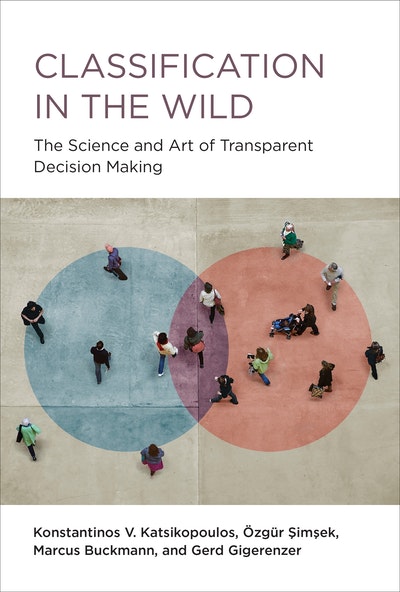- Published: 4 May 2021
- ISBN: 9780262045155
- Imprint: MIT Press Academic
- Format: Hardback
- Pages: 200
- RRP: $90.00
Classification in the Wild
The Science and Art of Transparent Decision Making
- Published: 4 May 2021
- ISBN: 9780262045155
- Imprint: MIT Press Academic
- Format: Hardback
- Pages: 200
- RRP: $90.00
"Reflection and reason are overrated, according to renowned psychologist Gerd Gigerenzer. Much better qualified to help us make decisions is the cognitive, emotional, and social repertoire we call intuition, a suite of gut feelings that have evolved over the millennia specifically for making decisions. Gladwell drew heavily on Gigerenzer's research. But Gigerenzer goes a step further by explaining just why our gut instincts are so often right. Intuition, it seems, is not some sort of mystical chemical reaction but a neurologically based behavior that evolved to ensure that we humans respond quickly when faced with a dilemma." -- BusinessWeek
"Before his research, this was a topic dismissed as crazed superstition. Gigerenzer is able to show how aspects of intuition work and how ordinary people successfully use it in modern life." -- The New York Times
"Gigerenzer's theories about the usefulness of mental shortcuts were a small but crucial element of Malcolm Gladwell's bestseller Blink, and that attention has provided the psychologist, who is the director of the Max Planck Institute for Human Development in Berlin, the opportunity to recast his academic research for a general audience." -- Publisher's Weekly
